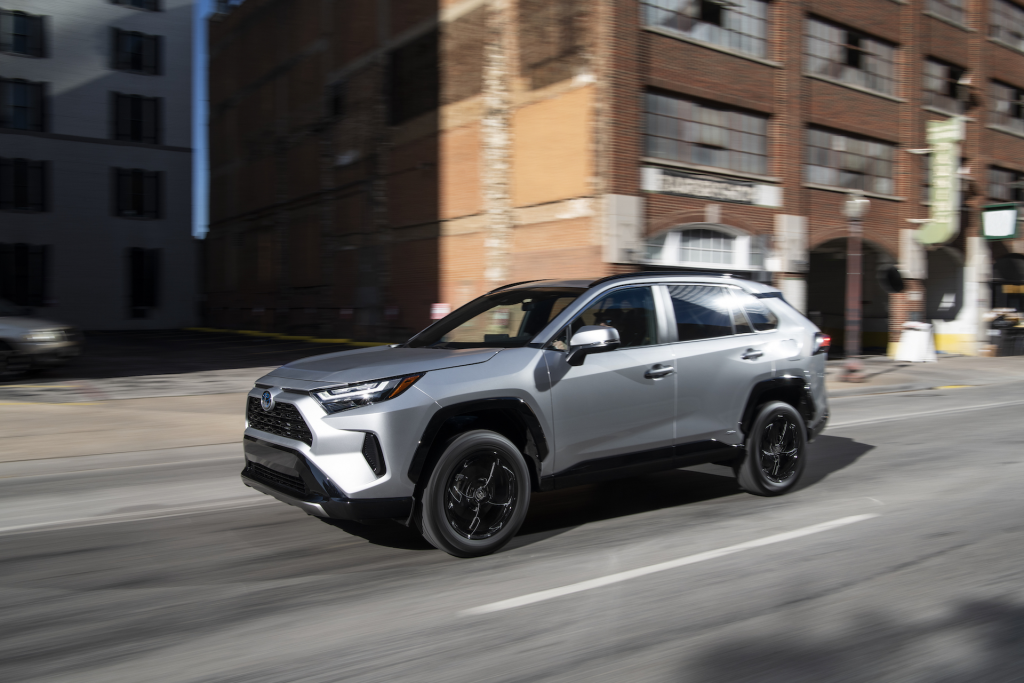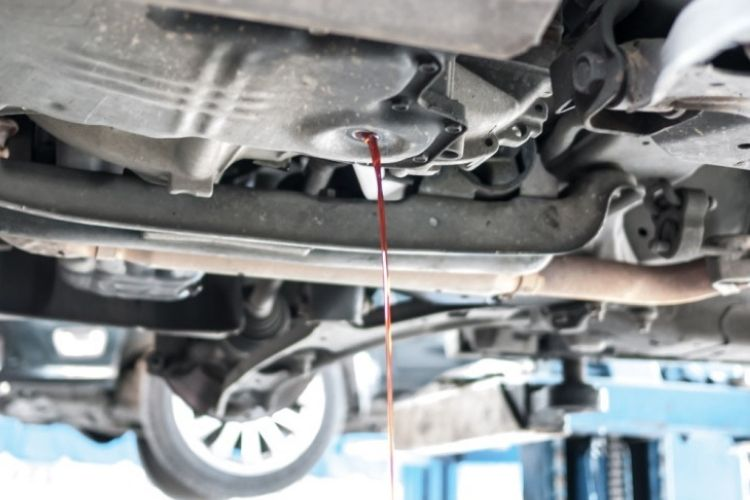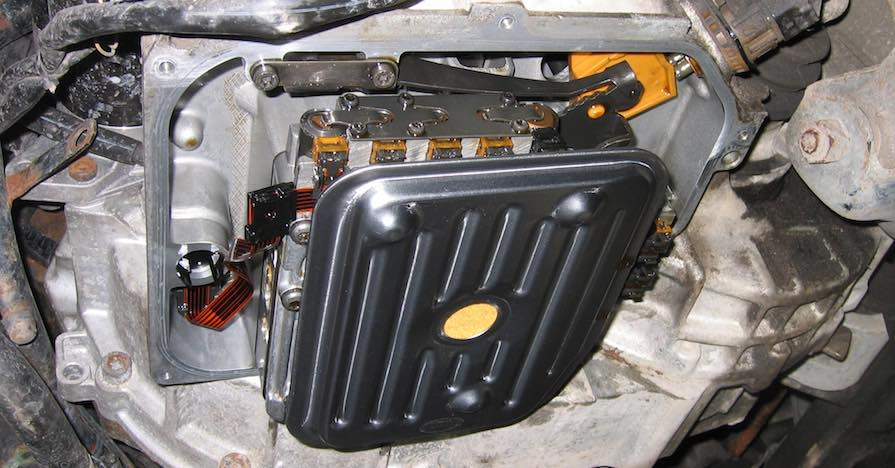Do you own a RAV4 that you love driving everywhere through paved roads and rough terrain? However, noticed a grinding noise after crossing 40 mph, and it has you concerned.
What causes RAV4 grinding noise at 40mph?
A RAV4 grinding noise at 40mph happens for a number of reasons. Running on contaminated transmission fluid is one of those. Low transmission fluid can also cause a RAV4 to make grinding noises. Damaged bearings are also a contributor to grinding noises. These end up causing problems if not checked.
Has this peek into the article gotten your attention? Then why don’t you read on to learn more?
5 Reasons Why Your RAV4 Makes Grinding Noise at 40 Mph
We’ve covered in detail the 5 reasons why your RAV4 is making grinding noise at 40 Mph. The first version of the RAV4 can be dated back to the early 90s. Since then, several variations of the car have come out. But the grinding noise can be traced back to a lot of them.
Here’s someone who faces the similar issue with RAV4.
So, let’s properly diagnose and solve the issues.

Reason 1 of 5: Worn Out/Bad Wheel Bearing
A worn-out/bad wheel bearings can cause a rumbling clamor. Your vehicle’s wheel bearings are enclosed components. Accumulation of dust, unfortunately, may get into it and pollute the oil. This causes the bearings within to dry up.
Grunting sounds might be detected when the bearings start to degrade. They don’t create much noise at certain velocities.
Some produce noise at moderate speeds, while others produce disturbance at high rates. The symptoms of a worn-out wheel bearing are many so don’t disregard it.
I recommend examining the wheel bearings if they have not been checked lately. Since this noise happens while moving, I attribute it to a wheel bearing.
Solution
Instead of fixing the worn-out bearing, the best answer is to replace it entirely. Mainly because the matter will resurface and cause more significant problems later on.
You’ll also save far more money over the long term if you replace the bearing. It will be easier than repairing it.
Suppose you’re looking for new wheel bearings. In that case, you can check out some of these:
| DRIVESTAR 4WD Rear Wheel Hub & Bearing | Check the Price on Amazon |
| IRONTEK Wheel Bearing | Check the Price on Amazon |
Reason 2 of 5: Faulty Needle Roller Bearings
Needle roller bearings are cylindrical roller bearings. They have a modest width in relation to their width.
The redesigned spinner profile eliminates pressure spikes, allowing the gear to last longer.
These mechanisms prevent the power converter’s shafts from clashing excessively. If the needle bearings break, your Toyota RAV4 will start grinding noises.
Inadequate lubrication is the primary factor of needle roller bearing problems. This includes insufficient lubrication, ineffective lubricants, and extreme heat that destroys the grease. Inadequate needle roller bearing placement and displacement can also lead to failure.
Unfortunately, a defective needle roller bearing cannot be repaired and must be replaced totally. You’re not likely to have needle roller bearings lying around.
Reason 3 of 5: Low or Contaminated Transmission Fluid
Vehicles with mechanical or hydraulic transmissions require adequate and fresh hydraulic fluid to function correctly. Without a proper amount of clean transmission fluid, your gearbox may overheat.
This will end up causing your gearbox to slip or surge out of hand. You will also notice grinding noises when coasting through a hill.
Transmission fluid’s hydrodynamic properties are used to move gears inside your gearbox. When the liquid gets polluted, it changes the fluid quality. This has an effect on the shifting capabilities of your RAV4.
Dirty brake fluid may cause your RAV4 to have shaking or trembling movements when driving. All of this ends up negatively contributing to the grinding noise.
Solution
The key to draining transmission fluid is to start from the top. You do so by drawing out the contaminated fluid through the filler pipe.
Then replenish with new fluid. A hand-operated suction transmission fluid pump simplifies the job.
You can drain one-third to one-half of the synthetic oil at once. The remainder will be retained in the transfer case and transmission cooler. So repeat the operation 3 times each week to replenish virtually all of the old fluid.
All those little old fluid that remains will be dissolved in plenty of entirely fresh liquid.
To get started, you’ll only need a special fluid pump and transmission fluid. Looking to change the transmission fluid yourself but don’t have a special fluid pump? We have used a few over the years and recommend a few with surety.
| Toyota Automatic Transmission Fluid | Check the Price on Amazon |
| Castrol TRANSMAX DEX/MERC ATF | Check the Price on Amazon |

Reason 4 of 5: Clogged Transmission Fluid Filter
The gearbox fluid filter is in charge of allowing clean fluid to pass through. A congested filter will impede its operation and eventually cause the gearbox to stall.
The filter becomes clogged due to debris from abrasion and constant use on tough terrain. Metal wear from geartrain components is another factor.
Bearings and bushings become entangled in the filter. It continues to build up until the filter is completely clogged.
Solution
Mount the vehicle on a lift to begin replacing the filter. Disconnect and scrub the transmission pan after draining the brake fluid.
Then, prior to replacing the pan, install a new rubber gasket. Remove the old filter next. It may be bolted in place, although it is usually removable with a wrench.
Replace the old transmission filter with your new one.
Then, replace the transmission pan and add transmission fluid. Make sure you safely dispose of the old fluid. Do not dispose of it on the street or down the toilet.
Check with your local car parts shop to see if they will accept it. If not, they would find who can and will.

Reason 5 of 5: Differential Low on Fluid
If you have a rear-wheel drive, the noise may not be coming from your gearbox. It’s possible that it’s the back axle. It could be your center or front axle if you have all-wheel drive. Fluid is required to maintain inner components in all differentials.
If the axel is forgotten for a prolonged time and the fluid runs low, it’ll become noisy. It will eventually fail as result. If this occurs, the gears may seize, locking up the rear wheels.
This ends up possibly creating serious damage or a catastrophe. This can end up making noises whenever you’re speeding up or slowing down your car.
Solution
Disassemble the drain plug after removing the fill-hole cover at the top of the differential case. If you don’t have a drain plug, loosen the chassis bolts.
Then drop a couple of bolts tenuously connected on top to keep the cover in place.
Crack open the cover gingerly with a regular screwdriver. Otherwise, the oil may flow outside and coat you in a foul stench.
Take care not to scratch the differential housing’s surface. Allow the oil to drain fully before removing the cap.
Frequently Asked Questions (FAQs)
What year did RAV4 have transmission problems?
The RAV4’s most difficult issues were in 2002 and 2007, especially with its automatic gearbox. Despite its fresh incarnation, the newer model RAV4 still has issues with its automatic gearbox. Other difficult years include 2008, 2006, and 2001.
Is there a transmission problem with the 2020 RAV4?
There have been a few instances of transmission issues with the 2020 Toyota RAV4. A stuttering clutch, one that is sluggish and then swerves ahead are examples of such issues.
How much does a Toyota RAV4 gearbox replacement cost?
A new Toyota RAV4 gearbox can cost more than $3,500 varying the car model and year. However, transmission services such as fluid changes and transmission fluid flushes are significantly less expensive. These usually sometimes run less than $150.
Final Words
We’ve covered everything you need to know regarding a RAV4 grinding noise at 40mph
The best solution to the issues we’ve mentioned is taking it to a mechanic or garage. Then have them fix the issue. This would be the easiest way to resolve the issue but can be costly.
You can also go the DIY way and save a lot of money. However, we recommend it only for those that know their way around a car.
Good luck!
- Is The Jeep Cherokee Frame or Unibody (Briefly Answered) - November 10, 2022
- Are Titan Wheel Spacers Good (The 360 Guidelines) - November 9, 2022
- FCW off Jeep (Is It Important for Your Car) - November 9, 2022
